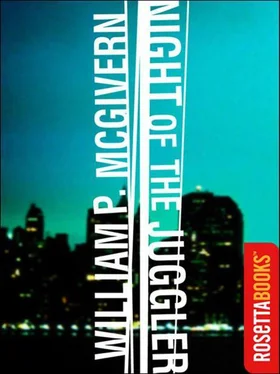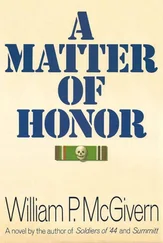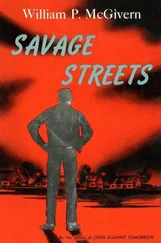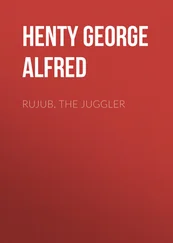William McGivern - Night of the Juggler
Здесь есть возможность читать онлайн «William McGivern - Night of the Juggler» весь текст электронной книги совершенно бесплатно (целиком полную версию без сокращений). В некоторых случаях можно слушать аудио, скачать через торрент в формате fb2 и присутствует краткое содержание. Жанр: Триллер, на английском языке. Описание произведения, (предисловие) а так же отзывы посетителей доступны на портале библиотеки ЛибКат.
- Название:Night of the Juggler
- Автор:
- Жанр:
- Год:неизвестен
- ISBN:нет данных
- Рейтинг книги:3 / 5. Голосов: 1
-
Избранное:Добавить в избранное
- Отзывы:
-
Ваша оценка:
- 60
- 1
- 2
- 3
- 4
- 5
Night of the Juggler: краткое содержание, описание и аннотация
Предлагаем к чтению аннотацию, описание, краткое содержание или предисловие (зависит от того, что написал сам автор книги «Night of the Juggler»). Если вы не нашли необходимую информацию о книге — напишите в комментариях, мы постараемся отыскать её.
Night of the Juggler — читать онлайн бесплатно полную книгу (весь текст) целиком
Ниже представлен текст книги, разбитый по страницам. Система сохранения места последней прочитанной страницы, позволяет с удобством читать онлайн бесплатно книгу «Night of the Juggler», без необходимости каждый раз заново искать на чём Вы остановились. Поставьте закладку, и сможете в любой момент перейти на страницу, на которой закончили чтение.
Интервал:
Закладка:
He tried to sort it out. Two things would have drawn her here: sight or sound of Harry Lauder. Since she couldn’t see him at that distance at this hour of night, she must have heard him. From which it could be inferred that the Scottie had been among those trees. Then why no sign of him?
Suddenly, Luther Boyd was sickened by a conviction of what might have happened. He began looking for something else, and he found what he was looking for at the far edge of this stand of trees, the imprints of a huge pair of boots. He knelt and examined them closely under the beam of his flashlight. Wellingtons, he surmised, with stacked heels. And clearly defined in the mud were jagged notches on the bottom of those heels, V-shaped indentations that had been cut unevenly into the leather with some kind of sharp instrument.
He saw it all then. Someone had stood here waiting for Kate, watching her run across the open meadow toward the trees. A big man, a heavy man, to judge from the size of the Wellingtons and their deep imprint in the soggy earth, and he had stood here holding the Scottie in his hands, using the barking dog as a magnet to draw Kate to him.
Luther Boyd glanced rapidly in all directions, scenting the chill night wind like an animal. There was traffic on the East Drive, and there were probably couples strolling about somewhere in this reasonably safe area of the park.
So it was logical to assume the man wouldn’t make a move here.
Using the dog as a lure, he would try to draw Kate deeper into the park, across the East Drive, and probably north then to areas that were remote and isolated and silent.
Rising quickly, Boyd began tracking those Wellingtons with the V-shaped indentations in their heels, and his deduction was proved correct almost immediately, for those huge footprints led him toward the East Drive. When Boyd picked up the imprints of Kate’s boots on the same line he knew with certainty that his daughter was running headlong into the trap being set for her.
And because Luther Boyd had been reared by religious parents, words came to him from the verses of Matthew: “It had been good for that man if he had not been born.”
But because he had spent the majority of his life in barracks and on battlefields, the remorseless purity of that threat was accompanied by a thought of his own, grim and savage: I’ll find you, you big bastard, and when I do, you’ll wish to God you’d got your kicks from a madam with whips and leather.
Barbara Boyd paced the drawing room of their apartment, her nerves drawn painfully tight with tension, and while she tried to resist the impulse, she was drawn helplessly toward the windows to stare at the bleak and now-terrifying darkness of Central Park.
But with her fear and anguish had come a searing confusion. What was it he had said? That he was good at details like this. . She hadn’t thought of him in that way before, as a man so strong and competent that other men sought him out when there were dirty, dangerous jobs to be done. She wondered how grossly she might have misjudged him. What of her reason for her leaving him? Because he had always left her. But perhaps not always for the lure of excitement and danger, flags flying in stiff breezes. Maybe he had left her in the past as he had left her tonight, to do something that other men ordered him to do, something essential and perilous. But in this moment of terror, she was desperately grateful to him for leaving her.
She was given annealment and hope because it was her husband, Luther Boyd, who was searching for Kate. And with that thought came a guilty conviction that hundreds, maybe thousands of soldiers had been given hope, as she was given hope now, because there was a Colonel Luther Boyd to lead them into battle.
But it was too much to ask of any one man. Or any one woman, she realized miserably.
To question his judgment and appraisal of the situation might be fatal, but after an agonizing moment of indecision Barbara picked up the phone and with trembling fingers rapidly dialed the New York police department.
She was transferred from Central to a switchboard and within seconds was answering questions in response to the impersonal but strangely reassuring voice of a Lieutenant Vincent Tonnelli.
After logging the time of Mrs. Luther Boyd’s call (six fifty-eight P.M.), Lieutenant Gypsy Tonnelli had ordered into action fifty percent of the provisional equipment and personnel assigned to his task force and had notified Manhattan borough commanders, North and South, Chiefs Slocum and Larkin, that he had placed the remainder of his forces on a standby Red Alert status.
This might have been considered an overreaction to the report of a missing child, but both chiefs had agreed with the Gypsy’s decision.
Because there was something strange and dangerous about the times.
. . The child had gone into the park about six P.M. The parents had learned of her disappearance at approximately six thirty but had waited another half hour to notify the police. Which meant the child had been in the park almost an hour by the time Mrs. Boyd’s call came in. In addition, the department had had a probable visual “make” on the Juggler at five forty-eight at Eighty-third and Lexington, not more than six or eight minutes from where Kate Boyd had gone into the park.
It was the killing day, the killing hour, and they had certain knowledge the Juggler was in a fateful radius of Central Park and Kate Boyd.
In the conference call with the chiefs, Chip Larkin had concluded by saying quietly, “Say a Hail Mary and pour it on, Lieutenant.”
And Chief Slocum had added, “Put a frigging noose around the park, Gypsy, and we’ll pull it up hard and tight.”
At Tonnelli’s headquarters, Sokolsky had dispatched squads and patrolmen from standby pools to the east and west perimeters of Central Park, sealing it off from Seventy-eighth Street north to the borders of Harlem. The squads were to be parked at hundred-yard intervals with dome lights flashing, while the patrolmen would maintain surveillance on sidewalks at fifty-yard intervals until further notice.
Dispatcher Ed Maurer on the switchboard at Sergeant Boyle’s headquarters had dispatched similar units to establish identical cordons from Seventy-seventh Street south to Fifty-ninth and across Fifty-ninth from Fifth Avenue to Central Park West.
Thus, within fifteen minutes of Mrs. Boyd’s call to Lieutenant Tonnelli, these units had been deployed, and from an aerial view, Central Park would appear as a huge black rectangle with its four sides defined by mile-long lines of flashing red dome lights.
Tonnelli said to Sokolsky, “Send the child’s description to the local radio stations. White, blond, age eleven, wearing a red ski jacket.” He had got these details from the child’s mother.
“How about TV?” Sokolsky asked him.
“They’ll pick it up anyway,” Tonnelli said.
“Then why give it to radio?”
“It’s a thousand-to-one chance, but I’m taking it. Some guy driving in the park might just spot the girl. I’d rather keep a lid on it, but we’ve got to give the Boyd child every break we can.”
Lieutenant Tonnelli told Sokolsky to notify Deputy Chief of Detectives Walter Greene that he was leaving headquarters and would be at the Boyds’ apartment within minutes.
She was an attractive lady with style. Lean, rangy body, tawny hair, college, of course, and money-these were Gypsy Tonnelli’s first impressions of Barbara Boyd, who stood waiting for him with Mr.
Brennan under the canopy at the entrance of their building.
After introducing himself, Tonnelli checked the line of squad cars bordering the eastern edge of the park on Fifth Avenue.
“Your daughter went into the park about six? Is that right?”
Читать дальшеИнтервал:
Закладка:
Похожие книги на «Night of the Juggler»
Представляем Вашему вниманию похожие книги на «Night of the Juggler» списком для выбора. Мы отобрали схожую по названию и смыслу литературу в надежде предоставить читателям больше вариантов отыскать новые, интересные, ещё непрочитанные произведения.
Обсуждение, отзывы о книге «Night of the Juggler» и просто собственные мнения читателей. Оставьте ваши комментарии, напишите, что Вы думаете о произведении, его смысле или главных героях. Укажите что конкретно понравилось, а что нет, и почему Вы так считаете.












